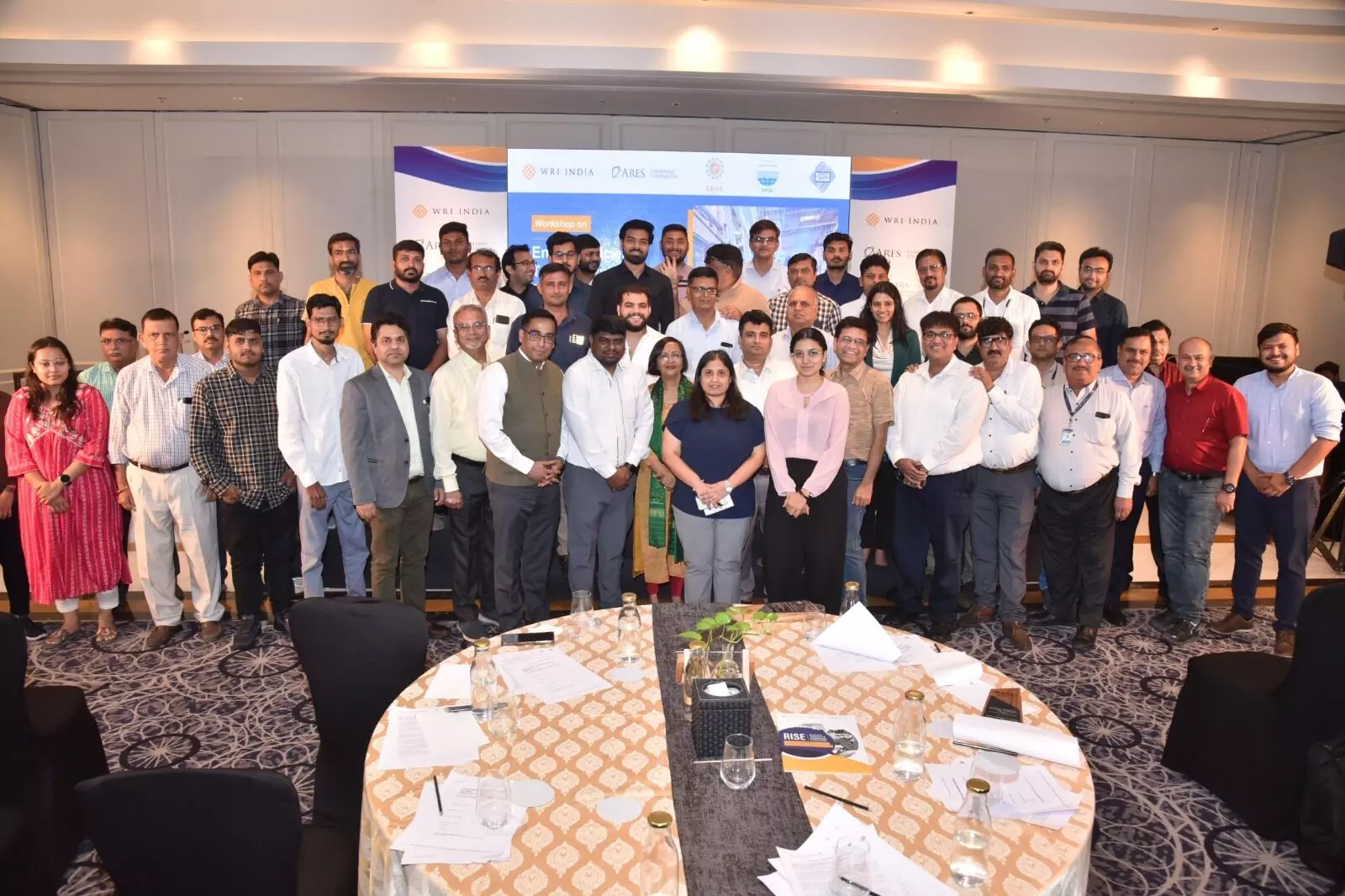Surat's Textile MSMEs Urged to Adopt Green Tech on International MSME Day

On the occasion of International MSME Day, high-ranking government representatives and specialists have demanded the adoption of low-carbon technology and the provision of funding options for Surat's textile MSMEs. In order to help India reach its Net-Zero target by 2070, the Gujarat Energy Development Agency (GEDA), Gujarat Pollution Control Board (GPCB), South Gujarat Textile Processors Association (SGTPA), and WRI India organized a workshop on "Energy-Efficient Technology and Finance." The workshop focused on the importance of sustainability in the textile industry.
India's textile MSMEs emit 2.7 billion tonnes of carbon dioxide annually, which is the same amount as the yearly emissions from 230 million passenger cars. However, programs like the Bureau of Energy Efficiency's Perform, Achieve and Trade (PAT) plan have helped to cut carbon dioxide emissions in the textile industry by an estimated 110.66 million tons.
Textile MSMEs in Surat, India's textile capital, are being badly impacted by the negative effects of climate change, including high heat and flooding. A significant portion of the 80% migrant labor force departs throughout the summer to avoid the intense heat. Furthermore, the more than 400 MSMEs in Surat that process textiles and generate 41 million meters of fabric every day mainly rely on energy-intensive, fossil fuel-dependent processes.
The event, which drew together more than 80 participants—including finance organizations, legislators, energy-efficient technology suppliers, and MSMEs in the textile industry—centered on emerging energy-efficient technologies and the funding required for a sustainable transition.
Senior project executive of GEDA Amita Pandya outlined the organization's initiatives to encourage the adoption of energy-efficient technologies in Gujarati industry. "We are in discussions to offer interest subsidies to textile MSMEs that adopt energy-efficient technologies with financial institutions such as the Small Industries Development Bank of India (SIDBI)," she stated.
"Gujarat is the highest contributing state in woven fiber production and produces 60 to 70% of the country's denim fabric, ranking first nationally and third globally," stated Ajit Upadhyay, an expert from the Bureau of Energy Efficiency.
The Ministry of Textiles' Assistant Director, Siddheshwar Dombe, highlighted the important role MSMEs play in the city of Surat's textile manufacturing industry. Modern textile processing and weaving techniques save prices and qualify MSMEs for a number of government programs. Both workers and MSME owners can benefit from skill upgrading, he added.
The negative effects of climate change pose a threat to industries and MSMEs everywhere, including in India, according to Subrata Chakrabarty, Associate Program Director, Climate at WRI India. In order to support India's climate goals and the aim of Net Zero by 2070, efforts are being made to mainstream low-carbon technology in MSMEs and to facilitate their access to financing.
The Ares Charitable Foundation's Climate Resilient Employees for a Sustainable Tomorrow (CREST) program backed the event, which was a major part of WRI India's RISE (Resilient, Inclusive, and Sustainable Enterprises) Surat campaign. RISE Surat, which was established on August 28, 2023, intends to provide 500 textile industry workers and at least 50 MSMEs in Surat with the resources, information, and expertise needed for India to make the shift to a low-carbon economy.
